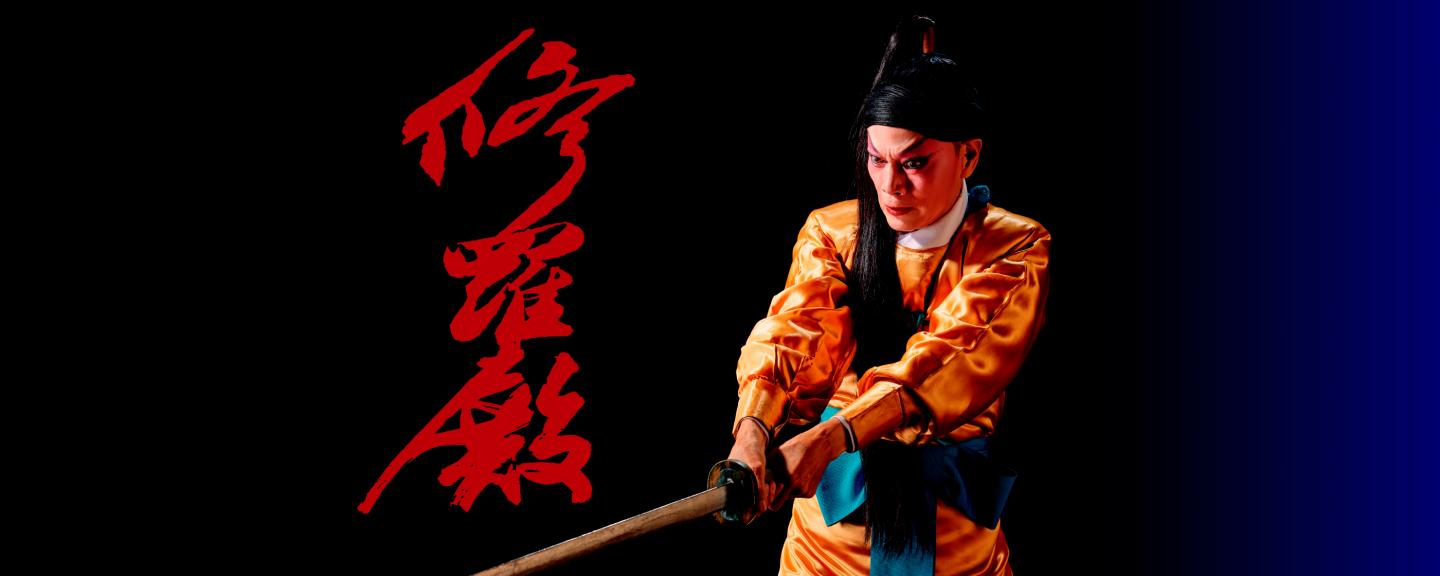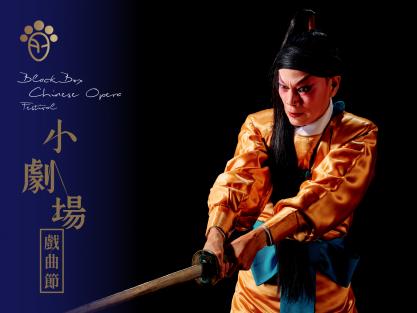Main
Description
Premiering the first solo performance of his career, Cantonese opera legend Law Ka-ying presents a unique one-man adaptation of his 2021 ensemble production The Asura Judgement. Inspired by Japanese director Akira Kurosawa’s classic film Rashomon, and written, directed and performed by Law himself, the new production sees the veteran performer adopt multiple roles, switching back and forth in time and space to recount “the truth” of a fatal crime from the subjective perspectives of a series of protagonists.
In recent years, Law Ka-ying has adapted a number of world classics for the Cantonese opera stage, including King Lear and Macbeth. The Asura Judgement transposes the story of Rashomon from 10th century Japan to late Ming Dynasty China. Retaining fundamental elements of Kurosawa’s work – a tale of murder retold by a thief, a monk, a woodcutter and his wife – the production addresses issues of humanity, morality and trust from a variety of angles. In a major artistic breakthrough it also blends the narrative techniques of contemporary theatre and film editing with traditional Cantonese opera stage and lighting practices.
Commissioned by the Xiqu Centre, this new performance condenses the original three-hour script of the 2021 ensemble production The Asura Judgement into an artistically demanding one-man show.
Title Sponsor:
Produced by:

Artistic and Production Team:
Playwright / Director / Cast: Law Ka-ying
Producer / Director / Script Arranger: Naomi Chung*
Composer / Music Arranger: Tam Siu-wai
Technical Director: Rae Wu*
Set Designer: Eric Chan
Lighting Designer: Leo Siu
Sound Designer: Fung King-hong
Video Designer: Dan Fong
Assistant Producer: Peter Lee*
Production Managers: Fanny Lo*, Katrina Chan*
Producer’s Assistants: Novia Chong*, Hazel Yau*
Musicians:
Ensemble Leader: Lee Tik-lun
Percussion Ensemble Leader: Mai Jiawei
Musicians: Ho Yimen, John Ho Chun-hei, Liu Chun-hei, Ng Ka-po, Ng Wing-lam, Szeto Wai-suet, Yue Kin-long, Yuen Ka-yi, Zhu Zhi-ming
*Staff of West Kowloon Cultural District
Additional info
Tabs
Commissioned by the Xiqu Centre, the experimental Cantonese opera The Asura Judgement is a stage retelling of the classic Japanese film Rashomon and stars Cantonese opera legend Law Kar-ying in a solo performance where he takes on multiple roles.
The original version of The Asura Judgement, written by Law himself, had a running time of over two hours. After its run, Law condensed it into a 90-minute experimental solo performance.
From its set design, to the lighting and sound systems, the production ulitises a combination of modern theatre technologies to craft a refreshing Cantonese opera experience for the audience. While Law is the sole actor on stage, he is able to interact with other characters via multimedia footage. This allows the events to be recounted through a string of contradicting perspectives, thus bringing out the core theme of the story—the ambiguous nature of truth and humanity.
The pared-down set and the employment of multimedia elements and montage technique add to the contemporary look and experimental ethos of the show as it explores new possibilities of Cantonese opera.
The continuous and sustainable development of Cantonese opera relies on bold experimentation and constant innovation. It was this belief that propelled Law to take on the monumental challenge of making and starring in The Asura Judgement. As a widely-revered industry veteran, he also hopes that his own journey of creating a multimedia Cantonese opera production will provide encouragement and wisdom for future innovators.
Cantonese Opera
Originating in the Guangzhou region of southern China, Cantonese opera is a genre of Chinese traditional theatre that is popular in Guangdong, Guangxi, Hong Kong and Macau, as well as the Chinese diaspora in Southeast Asia, America and Europe. The singing style adopts elements of bangzi and erhuang (traditional vocal and phrasing styles), and combines tunes of various origins, including set tunes from gaoqiang (high-pitched) and Kunqu genres and elements of folk narrative singing. Cantonese opera was inscribed onto the UNESCO Representative List of the Intangible Cultural Heritage of Humanity in 2009.


